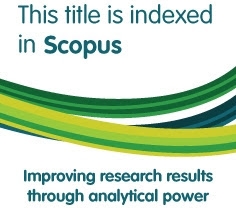Islam and Dutch Colonial Administration: The Case of Panghulu in Java
Abstract
This article examines the interaction between Islam and the Dutch East-Indies administration in Java from its formation in the early eighteenth century to the end of Dutch administration in 1942, with respect to religious courts and the role of the pangulu. This article argues that the interaction between colonial government and the pangulu institution rested on the hypothetical proposition that both the colonial ruler and the religious courts needed each other. On one hand, the Dutch viewed that the religious courts should be maintained in order to reduce the possibility of an eruption of an undesirable situation, such as a rebellion. On the other hand, for the pangulu, it was felt that the institution might be lost in the absence of official appointment by the ruling authority.
Full Text:
PDFDOI: https://doi.org/10.15408/sdi.v7i1.717
Refbacks
- There are currently no refbacks.

All publication by Studia Islamika are licensed under a Creative Commons Attribution-NonCommercial 4.0 International License.
Studia Islamika, ISSN: 0215-0492, e-ISSN: 2355-6145
View My Stats
